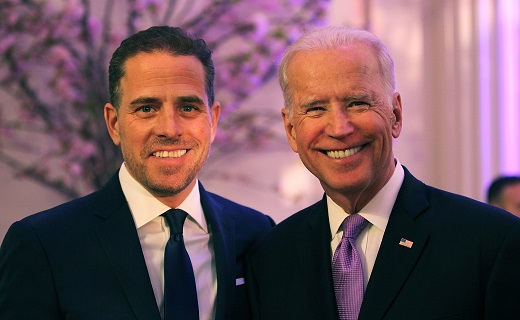Politics
JUST IN: New York Times Turns On Hunter Biden, FINALLY Exposes Burisma Influence Peddling

With his father out of the race for president and no port left in his storm, Hunter Biden is finally starting to see the mainstream media turn against him.
On Tuesday the New York Times posted a startling report on the embattled first son’s request for a key Biden ambassador to assist him in bringing aid to Burisma, the Ukrainian energy company where Hunter had a boardroom seat that company executives have outright stated was obtained only due to his family ties. The report is all the more revealing about how major news outlets are now willing to expose the son of President Joe Biden, who almost certainly was relying on another four-year term to help ease the criminal indictments mounting against him. According to the Times, the Biden administration waited until the president had ended his reelection bid before releasing records about Hunter’s lobbying of the U.S. ambassador to Italy in 2016.
At the time, Hunter was deeply enmeshed in helping Burisma fend off a corruption investigation from a Ukrainian prosecutor. The newly released documents paint a picture of embassy officials who felt uneasy about Hunter’s requests and cautioned him against promising that the administration could help facilitate a geothermal energy deal between Burisma and Italy. “I want to be careful about promising too much,” wrote a Commerce Department (DOC) official in response to Hunter’s request for a meeting. “This is a Ukrainian company and, purely to protect ourselves, U.S.G. should not be actively advocating with the government of Italy without the company going through the D.O.C. Advocacy Center.”
Despite the revelation, the Times was quick to suggest that career bureaucrats in the State Department, who it calls “notoriously slow” in responding to public records requests, did not mean for the long-delayed release of records to coincide with Biden’s decision to drop out. Early on in the story, the paper gave Hunter’s attorney Abbe Lowell a chance to push his client’s 2016 outreach under the rug. “No meeting occurred, no project materialized, no request for anything in the U.S. was ever sought and only an introduction in Italy was requested,” Mr. Lowell said in a statement, calling Hunter’s outreach part of a “proper request” to “ask various people” about connecting Burisma with Italian energy officials.
Congressman James Comer (R-KY), who has spearheaded a congressional inquiry into the Biden family’s business dealings, reacted to the news which even he had not uncovered as part of his investigation. “This is, I think, the biggest political corruption scandal in our history’s lifetime,” he said last week on Newsmax.
For months, the State Department stiff-armed public records requests by the Times and other outlets to release unredacted documents related to others found on Hunter Biden’s laptop. The government ultimately released thousands of pages of records, none of which related to Hunter’s business dealings, before closing the request. The Times sued, leading to the present disclosure. In the email exchanges, Hunter’s business associate Eric Schwerin can be seen asking for a seemingly innocuous meeting between U.S. Ambassador John R. Phillips and Enrico Rossi, the head of Tuscany’s regional government.
“Burisma is hoping that some of its executives can get a meeting with the president to discuss their geothermal business in Tuscany,” Schwerin wrote to the Commerce Department contact. “The Ambassador already replied to one letter from Mr. Biden,” the Commerce Department official wrote in an email to other U.S. government officials. “He may be shopping for more support than he got here,” the official added. In an interview, the former ambassador said he did not recall any outreach by Hunter. The full text of a letter by the Biden son requesting a meeting was redacted by the state, which cited privacy disclosures that may compromise his safety.
Ultimately the project never moved forward. If Mr. Biden had written to him, “I certainly would pay attention to it,” Phillips told the Times. “Out of courtesy, I’d probably make sure he got a response of some sort, but not necessarily from me. And I wouldn’t even want to encourage it, because I wouldn’t get us involved in something like that.”

